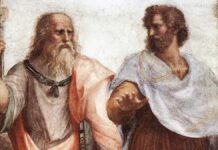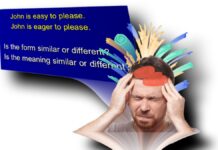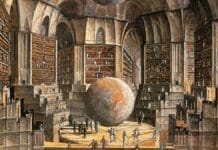The epic is one of human history’s most enduring and influential literary forms. Epic narratives have transcended time and culture, leaving an indelible mark on the world of literature. These grand tales, often recounting heroic deeds, gods and monsters, and the struggles of humanity, continue to captivate readers and serve as a window into the values, beliefs, and historical contexts of their respective societies.
The epic is a narrative genre defined by heroic or legendary adventures presented in an extended format. It is a long narrative poem that usually deals with heroic deeds and events that are significant to the culture or nation of the poet. The epic genre has its roots in the oral tradition of ancient civilizations and spans a wide range of cultures and periods. Epic poems often deal with themes of war, adventure, and the supernatural. It typically has a grand scope and large-scale settings, encompassing vast journeys or even the cosmos. Epic comes from the Ancient Greek epos, meaning word, narrative, or song.
Epics are known for their grandeur and scope. They are set over a vast geographic area and cover a broad period, often incorporating historical or mythical events. The protagonist in an epic is a figure of heroic or legendary status. They undergo a series of trials and tribulations, often battling supernatural forces or beings and enduring exceptional hardship or danger. A crucial element of epic literature is elevated, formal language, often employing sophisticated literary devices such as similes, metaphors, and epithets. Epics also frequently incorporate divine or supernatural interventions in human affairs.
The main characters in epics are traditionally heroes who embody the values of their society and exemplify qualities of great physical strength, intellectual prowess, and moral rectitude. They typically face formidable adversaries or embark on dangerous quests. The structure of an epic often includes the invocation of a muse, begins in media res (in the middle of things), and uses elevated language or diction.
Historical Evolution
As a literary form, the epic can be traced back to the earliest human civilizations. It emerged as a means of preserving oral traditions and historical narratives. Early epic poems, such as the Sumerian Epic of Gilgamesh and the Indian Mahabharata, were recited by bards and poets to convey the collective memory of societies. Over time, these oral traditions evolved into written texts, ensuring their preservation and widespread dissemination.
Ancient Epics
Ancient epics often focused on heroic figures and their quests. They celebrated legendary warriors and rulers, exploring honour, courage, and divine intervention themes. Examples include the Greek Iliad and Odyssey, the Indian Ramayana, and the Hebrew Epic of Gilgamesh.
Medieval and Renaissance Epics
The epic continued to evolve in the Middle Ages and Renaissance. Works like Dante Alighieri’s Divine Comedy and John Milton’s Paradise Lost combined epic conventions with Christian theology, creating allegorical narratives that explored themes of salvation and human nature.
Characteristics
- It is a long poem, typically 10,000 lines or more.
- It tells the story of a hero or more than one hero who typically embarks on a journey or quest.
- It has a complex plot that involves a series of trials and challenges for the hero.
- It is set in a grand or heroic setting, such as a war or a conflict between gods and humans.
- It has many characters, including heroes, villains, and gods.
- It has a setting that is both real and mythical.
- It often features supernatural elements like gods, monsters, or magic.
- It uses elevated language and imagery.
- It has a timeless message about the human condition.
Cultural Significance
Epic narratives hold profound cultural significance. They serve as mirrors reflecting the values, ideologies, and beliefs of the societies that produce them. Epics often function as foundational texts that help shape cultural identity and provide a shared mythology for a people.
Moral and Ethical Lessons
Epics frequently convey moral and ethical lessons through the trials and tribulations of their heroes. These stories become vehicles for teaching values and guiding ethical behaviour within a society.
National Identity
Many epics, such as the Aeneid by Virgil, have been used to establish and reinforce national identities. They celebrate the origins and greatness of a nation, legitimizing rulers and governments.
Religious and Philosophical Exploration
Epics often grapple with profound questions about the nature of existence, the divine, and the human condition. They serve as platforms for exploring religious and philosophical ideas.
Notable Examples
- Iliad and Odyssey by Homer (Ancient Greece)
- Aeneid by Virgil (Ancient Rome)
- Epic of Gilgamesh (Sumeria)
- Mahabharata and Ramayana (India)
- Beowulf (Anglo-Saxon England)
- Song of Roland (France)
- Nibelungenlied (Germany)
- The Divine Comedy by Dante Alighieri (Italy)
- Paradise Lost by John Milton (England)
Importance
- They celebrate the human spirit and inspire us to achieve great things.
- They teach us about the importance of courage, perseverance, and sacrifice.
- They help us to understand the complex forces that shape our lives.
- They entertain us and transport us to other worlds.
With its enduring legacy and cultural significance, the epic remains a vital and vibrant form of storytelling. From the ancient world to the present day, it has evolved and adapted to reflect societies’ changing values and concerns. In cultural terms, epics serve as foundational texts that provide insight into a society’s values, norms, and beliefs, often imparting moral or philosophical lessons. They offer a snapshot of the societal conditions of their time, preserving complex cultural histories and identities. Through the epic, we gain access to humanity’s collective memory, wisdom, and imagination, and we continue to find inspiration and meaning in its epic tales of heroism, adventure, and the human experience.






























